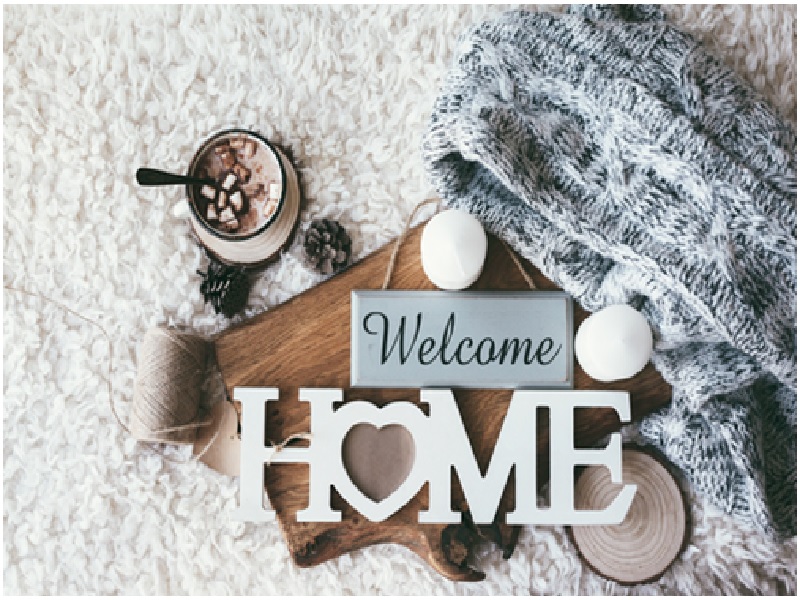Guide to Buying Your First Home- Buying a home is an exciting, life-altering event, especially if you’ve been a long-time renter beholden to less-than-ideal landlords and subject to other drawbacks of renting. Renting is sometimes the only affordable option but when you’ve finally saved enough, you can make the jump to being a home owner. Buying a house allows you to build equity and can provide beneficial tax write-offs – among plenty of other major positives.
Curious about where to start on your journey to a new home? Follow the guide below to get an idea of what to expect during your home-buying process:
- Figure out your budget
This is probably one of the most important parts of buying a home. You’ll need to make sure that you can actually afford the property you’re buying. But what does that really mean when you break it down?
Experts recommend you don’t look at properties that are more than 2-3 times your total annual income. Your mortgage payment shouldn’t be more than 28% your monthly income as well.
Find these hard numbers and you’ll have a much better idea of what you can reasonably afford. Keep in mind, closing costs will be about 3% of the house’s total value. A minimum down payment of at least 20% of the home’s value is also recommended to avoid paying for private mortgage insurance.
- Figure out which mortgage is right for you –then, get pre-approved
Shop and compare different mortgage lenders and different types of mortgages: a fixed-rate mortgage or an adjustable rate mortgage. Pay attention to the terms and conditions of each offer you get, each lender will vary. It’s often a good idea to look local. For example, if you live in the New Hampshire area, you’ll likely want to approach a credit union in Manchester, NH; local lenders will understand the current market in your area, and may be able to provide more favorable terms tailored to your needs.
Once you decide what kind of mortgage you want and which lender you’ll go with, apply for pre-approval. This shows sellers you’re already a qualified buyer.

- Try out a mortgage budget before you make the jump
One of the best ways to figure out if you’re ready to buy a home is to do a trial run of what your finances would look like once a mortgage payment is in the mix. Pick a home price you’ve determined you can afford, then subtract whatever that amount is from your budget each month and put it into a savings account.
If you can’t comfortably afford your expenses, then it’s time to reevaluate your housing budget. Or, maybe you can afford your mortgage after your trial run but the trade-offs (like giving up certain services) were too painful to keep up. In that case, it’s also a good idea to re-evaluate your housing budget.
4.Determine your must-haves versus your wants
Your must-haves include the minimum number of bathrooms and bedrooms, of course.But you should also consider the neighborhood, its proximity to your work, the school districts you like if you have kids, and your proximity to your favorite watering holes – if that’s important to you.
Details like landscaping, furniture, decorations, and paint can all be changed, fixed, and added so don’t get distracted by those aspects. Just make sure to work those changes into your final budget.

- Start the house search and decide if you want or need a real estate agent
This is the most fun part of the house-hunting process. You can use sites like Trulia or Zillowto get an initial search started and an idea of what houses cost in the neighborhoods you’re considering. Youmight want to consider getting a real estate agent who know the ins and outs of real estate laws and can help you navigate the closing process. They might also have access to homes on sale you wouldn’t otherwise know about.
- Homeowner’s Insurance
Lenders generally require you to provide proof of homeowner insurance which can protect you from natural disasters and theft, for example. You can also apply for specific types of insurance based on the area you live in like wildfire insurance in fire-prone regions.
- Put in an offer and closing process
The right offer isn’t always full asking price but you don’t want to make an offer so low that it insults the seller. The idea is to hit the sweet spot and not spend more than you have to but still make an appropriate offer. This is where a real estate agent comes in handy as he or she can negotiate on your behalf.
Finally, once your offer is accepted, you should fully review the contract and turn in your mortgage application. Then, you can sign the papers and the house is yours.
By following these steps, you’ll be on your way to owning a new home. Do your research, get to know a real estate agent or hire one, and have fun. It’s your house after all, make it your own!














